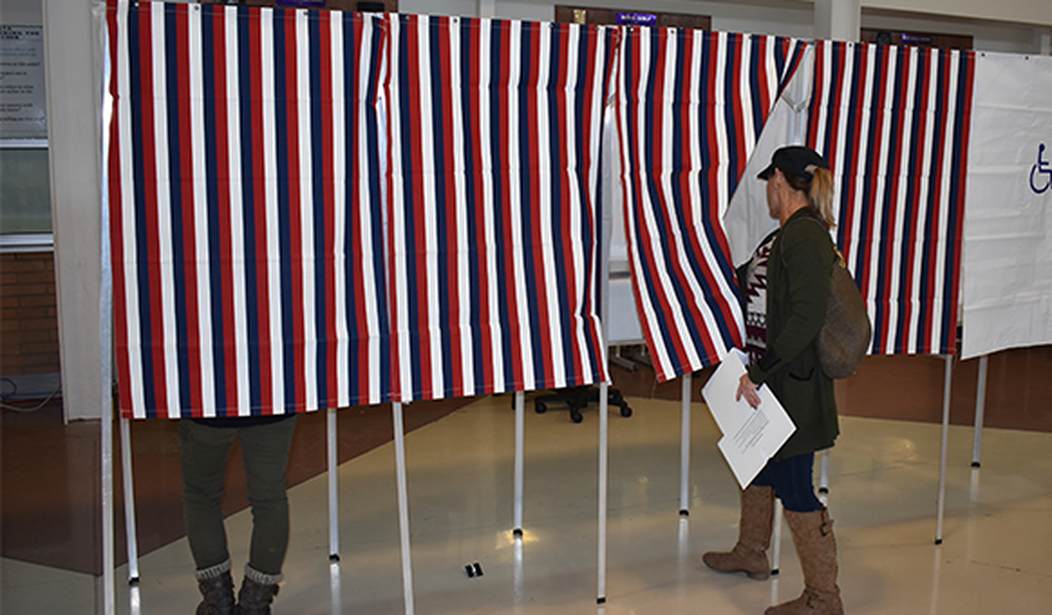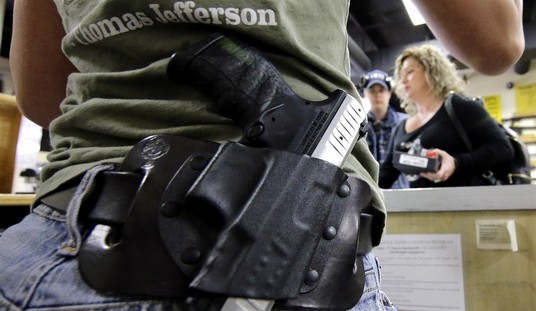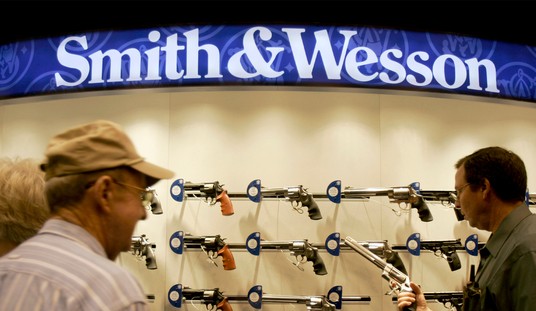For almost a year now, officials in Memphis have been touting a planned referendum that would allow residents to vote on a variety of gun control measures, including opting out of the state's permitless carry law, prohibiting the possession and sale of "assault rifles", and creating a local "red flag" law. Earlier this week, however, the Shelby County Election Commission and the Secretary of State rejected the referendum language, pointing out that all of those measures are already preempted by state law.
Now the city is suing the election commission for its decision, claiming it's "unpatriotic and un-Christian" to block the referendum from appearing on November's ballot.
"Around 10:20 we filed a lawsuit against the Shelby County Election Commission," Chairman JB Smiley Jr said. "The members of the public have spoken, the law enforcement community has spoken, Democrats in Shelby County have spoken, Republicans have spoken."
Smiley said the council complied with all laws in the state of Tennessee when the council passed the ballot referendums. He also said the city would "not back down." Councilwoman Jerri Green called the move by Republican leadership unpatriotic and unChristian.
"There is nothing patriotic about refusing to let citizens see their voices in their voting booth," Green said.
Smiley and Green stood with Councilwomen Jana Swearinger-Washington, Yolonda Cooper-Sutton and Pearl Eva Walker during the press conference.
"Why do you want us to not be safe? Why do you want us to be poor?... Why do you want to break this community?" Walker said. "Because where we are with this gun violence and these ridiculous laws we cannot sustain like this. We have to stake a stand on behalf of our government independence."
No level of government, be it federal, state, county, or local, has the authority to infringe on a constitutionally protected right. And in Tennessee, the legislature has made it clear that it, not political subdivisions, is the body that determines a uniform body of gun laws throughout the state.
But Memphis leaders claim that the measures in the proposed referendum wouldn't be enforced unless or until the state of Tennessee rescinds its preemption statute; essentially arguing the ballot measures are more of a public opinion poll than actual changes to the law.
Twenty years ago, the Tennessee Supreme Court ruled the Shelby County Election Commission overstepped its authority in removing a referendum from the ballot in Memphis that added a "privilege tax and/or fee on the privilege of engaging in certain vocations, occupations, callings and employment-related activities within the City". The Election Commission contended the ordinance was unconstitutional, the city maintained that even if that was the case it would be up to the courts, not the commission, to make that determination, and the state Supreme Court sided with the city.
Reduced to its essence, the City’s assertion is that, regardless of whether the Ordinance unconstitutionally enlarges the City’s taxing power, the Commission and the Coordinator clearly violated this constitutional doctrine of separation of powers. The City maintains that the Commission and the Coordinator usurped the judiciary’s authority to determine the constitutionality of laws, including municipal ordinances, and encroached upon the Memphis City Council’s legislative authority to enact and submit laws to the electorate. The Commission asserts that it had the authority – indeed the duty – to review the Ordinance to determine whether it violated ArticleXI, section 9 by enlarging the City's taxing authority. After carefully considering these arguments, we agree with the City that the Coordinator and the Commission violated the constitutional principle of separation of powers by refusing to place the Ordinance on the ballot. With regard to referendum charter amendment ordinances, like the Ordinance at issue in this case, Article XI, section 9 of the Tennessee Constitution clearly states: It shall be the duty of the legislative body of such municipality to publish any proposal so made and to submit the same to its qualified voters at the first general state election which shall be held at least sixty (60) days after such publication and such proposal shall become effective sixty (60) days after approval by a majority of the qualified voters thereon. By refusing to include the Ordinance, the Coordinator and the Commission thwarted the Memphis City Council’s constitutional duty to submit the Ordinance to the qualified voters at the first general state election.
Based on that 2004 decision, Tennessee officials may have trouble keeping these unconstitutional provisions off the ballot come November. And I have no doubt that in one of the few Democratic strongholds in the state, the referendum's infringement would be pretty popular with voters. But even if the courts allow the referendum language to appear on the ballot, there's no way for Memphis to enforce these proposed ordinances without running afoul of both the state's firearm preemption law and the Bill of Rights.
If Memphis politicians were really serious about combatting violent crime, they'd be asking residents to approve more money to fight juvenile crime instead of waging war on our Second Amendment rights. The proposed referendum isn't about public safety. It's a public relations stunt from city leaders who find it more politically profitable to blame legal gun owners for violent crime instead of holding the actual offenders accountable for their actions. And if the anti-gun referendum does appear on the ballot and is approved by voters, I don't think it will be long before the city uses their new ordinances to launch a direct attack on Tennessee's preemption law itself.









Join the conversation as a VIP Member